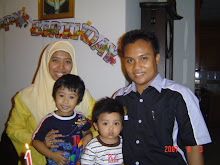
1. Waqf, perpetual charity and poverty alleviation. By. Abul Hasan M Sadeq (Malaysia).
2. Decesions on capital structure in a zakat environment with prohibition of riba; the case of Saudi Arabia. By. Jasim al ajmi, Hameeda Abo Hussain anda Nadhem al Saleh (Bahrain).
3. Dialectics in socio-scientific inquiry: Islam contra Occident. By. Masudul Alam Choudhury (Oman).
4. Al-Ghazali on social justice, Gudelines for a new world order from an early medieval scholar. By. Ozay Mehmet (Canada)
5. Trust or distrust in the web-mediated information environment (W-MIE); a perspective of online Muslim users . by. Emma Nuraihan Mior Ibrahim, Nor Laila Md Noor and Shafie Mehad (Malaysia).
6. Government regulation of religion and investments in human and physical capital; religion versus secularism. By. Giuseppina autiero and Concetto Paolo Vinci (Italy)
7. Islam versus liberalism: contrasting epistemological inquiries. By. Masudul Alam Choudhury (Indonesia)
8. The ethics of marketing in Islamic and Christian communities, insight for global marketing. By. Paul Gibbs (UK) and Mustafa Ilkan (Cyprus).
9. Performance of shariah compliance companies in the plantation industry. By. Mohd Dali Nuradli Ridzwan Shah bin, Mudasir Hamdi Hakeim anda Abdul Hamid Suhaila (Malaysia)
jika anda membutuhkan jurnal diatas untuk penulisan makalah atau riset, sebutkan kode dan nomornya, email ke jaharuddin@gmail.com


















